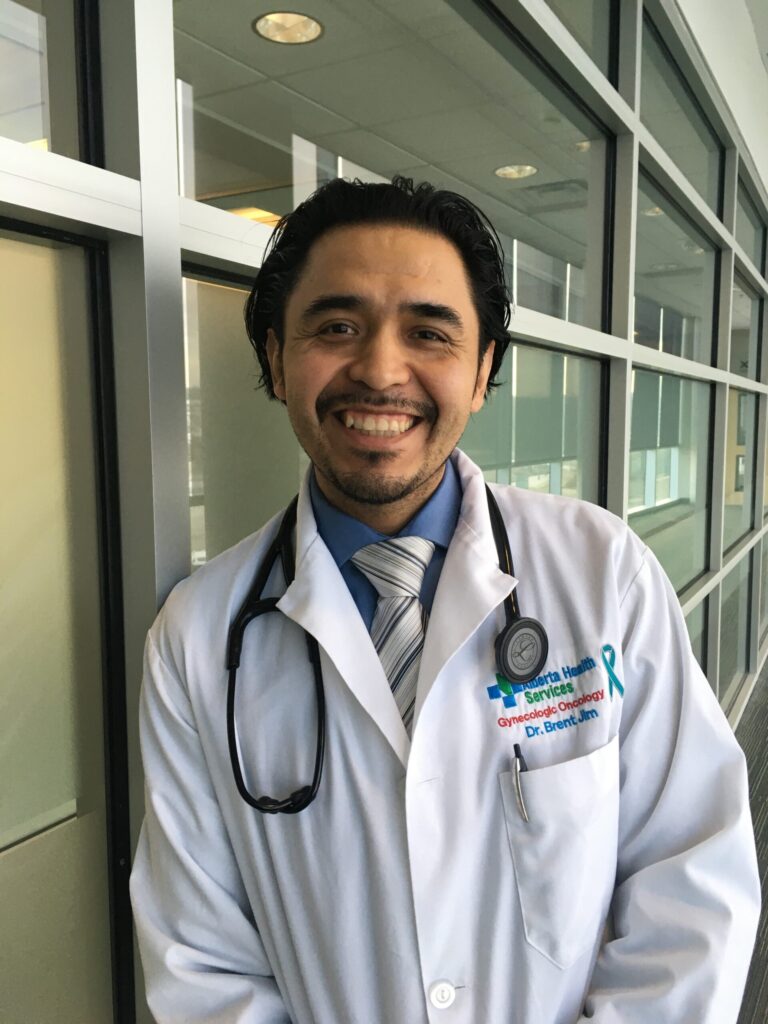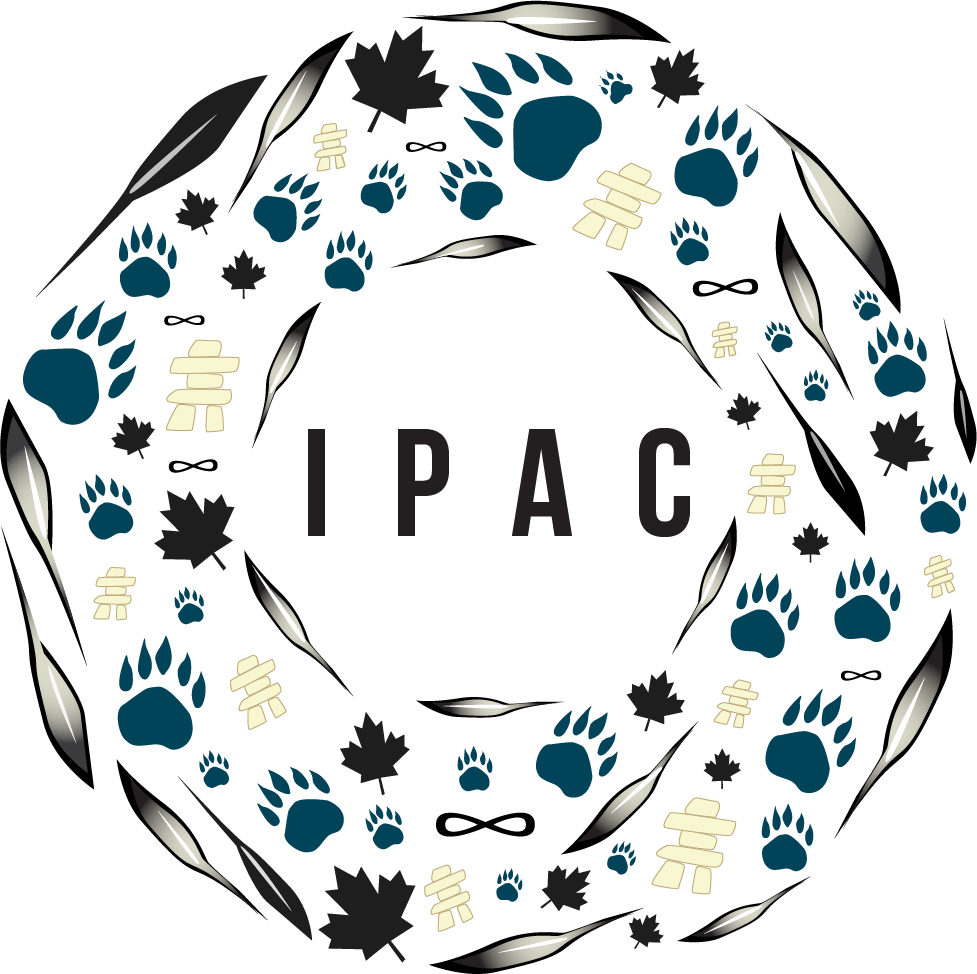RECOGNIZING EXCELLENCE JIM BRENT

JIM Brent
Firstly introduce yourself and tell us where your home place is. Describe your job/jobs in just under four sentences. Please also provide your title and profession.
My name is Brent Jim. I am from the Wet’suwet’en First Nation in Witset, British Columbia. I belong to the Laksilyu (small frog) clan in the house of Tsee K’al K’e Yex (House on a Flat Rock).
I recently completed a fellowship in gynecologic oncology at the University of Calgary. I am currently practicing as a gynecologic oncologist at the Saskatchewan Cancer Agency in Regina, SK. I provide comprehensive gynecologic (cervical, uterine, ovarian) cancer care to the women of this wonderful province.
What sparked your interest to work in this industry?
This is a question I get asked a lot. I would say it was because I grew up with 2 paternal grandparents who had chronic medical conditions. Because we lived in a remote community, they both had to travel for their medical appointments. As they got older, these visits got harder on them. Rural and remote communities deserve to be serviced the way urban communities are. However, unfortunately geography is a barrier to medical care. My plan was to do a family medicine residency and return to my community. However, my path took a turn when I realized I needed to do a surgical specialty. There are surgical personalities and non-surgical personalities in medicine. I was lucky to realize early on in my training that I loved the operating room and that I had to be there. Unfortunately, this path has lead me to a specialty that requires me to be in a city that has a cancer centre. I do still plan on providing care to women in rural and remote communities in the future once my practice is established.
What do you enjoy most about your profession?
My patients and their families. I do love being a surgeon but what gets me out of bed in the morning is knowing that I am making a difference in a patient’s life. Being diagnosed with agynecologic malignancy is not easy for anybody. Being there for my patients throughout their cancer journey is unique to gynecologic oncology. I am there for my patients from her diagnosis, to her surgery, through her chemo and at end-of-life. If I can make any step easier, I consider my job a success.
What educational preparation would you recommend for someone who wants to advance in this field?
There are several ways to get into medicine. I did go the science route and got my bachelor of science in human physiology before applying to medical school. Some of my classmates were engineers. Other classmates did nursing prior to medicine. I even knew somebody who
had a philosophy degree. If I were to do it over again, I probably would have done engineering or nursing before medicine. This would make me employable after my education if I was not accepted into medicine. I would also recommend doing the MCAT after 2 nd year undergrad. I waited until after I graduated before writing the MCAT and had to re-learn physics and biochemistry. I would also recommend not focusing entirely on academics. Medical schools want to see who you are as a person. They want to see some research and volunteering on your application.
What does success look like to you for Indigenous youth?
Knowing who you are and knowing where you came from. I grew up on a reservation. Quite honestly, I couldn’t wait to leave when I was a teenager. I moved across the country after high school to get as far away as possible. However, I never forgot where I came from. I was always proud to be a Wet’suwet’en man. I was always proud of who I was and where I came from. Growing up on my reservation helped shape the person I am today. I haven’t been able to get home as often as I would like. If I regretted anything in my life, it would be not learning more about my language and culture when I was home.
How has a failure, or apparent failure, set you up for later success?
Failure is a part of life. We can’t be successful 100% of the time. It is an unrealistic goal. School was something that came relatively easy to me when I was in high school. I remember failing a calculus test when I was in grade 12. This was the first time in a long time I had failed a test. I was actually devastated I had failed. I may have even cried. Because school came relatively easy for me, I didn’t think I needed to study very hard. Apparently I needed to study integral calculus. It made me realize that I can’t be passive and expect things to be spoon fed to me. Failing this test set me up for my undergrad studies because I was no longer at the top of the class. I was “average”. I had to put the time and effort in to succeed. It also set me up for my career. I am not always correct when it comes to a diagnosis or treatment. It’s ok to be wrong. Learn from it and move on. You can’t dwell on past failures. Look forward to your next decision and try not make the same mistake.
Do you volunteer? If so, where and why is that important to you?
Currently I do not volunteer. I am new to Regina. Once I get settled into my practice, I would like to volunteer. I would like to volunteer with my kids’ sports teams. Playing sports provides kids with important life skills. It is important to learn how to play on a team. You can’t do everything yourself. You will easily burn out. Being able to relegate tasks and share the load will make your life easier and more enjoyable. When I was in medical school, I did volunteer at the Victoria Native Friendship Centre working with youth. Being a role model for youth is very important to me. When I was in high school, I was elected to the inaugural youth council on my reserve. We helped open a youth recreation centre. Recreation centres give our youth a safe space to play and be social. We also provide mentorship and teach healthy life choices and values.
What are one to three books that have greatly influenced your life?
I recently read “The Subtle Art of Not Giving a F*ck: A Counterintuitive Approach to Living a Good Life” by Mark Manson. It is crude but I found that it helped the author get his point across. Some people will not appreciate the crudeness of the title or content. It is like a best friend talking to you about the decisions you’ve made in your life. It is a good slap-in- the-face. You can’t care about everything. Otherwise we would get bogged down. Only you have the authority to decide what you care about.
In the last year, what new belief, behavior, or habit has most improved your life?
Being more present for my family. Medical school and residency has not been easy for us. We had our first daughter just before I started clerkship in medical school and our second daughter just before second year of residency. I was not always present for my family. I now have more time to be there for them. I have been able to watch them play hockey and dance.
I have also been more active, which has helped both my mental and physical health. I started a boxing fitness class that helps me blow off some steam. I have also been going to the gym and playing hockey. It is not until you are active, you realize how important it is for your general wellbeing.
What are some challenges you think the next Indigenous generation will face in your industry/profession?
Unfortunately, I believe racism will continue to be a factor for the next generation. It is getting better, especially now that the residential school system is being added to school curriculums. There are still people that don’t understand we can’t “just get over it”. The intergenerational trauma is still present. We will break the cycle but it will take time. I was accepted to medical school through the Aboriginal Admissions Program at the University of British Columbia. It was not uncommon to hear non-Indigenous peoples’ objections to this process. Because medical school is so competitive, some people think it takes spots away from other applicants. In fact, if the spots don’t get filled, they go back to the general population. I support this process because Indigenous physicians are more likely to go back to their communities and service our underserved populations. Some people in medicine like to go abroad for global health initiatives. I think we should put the focus on our people here in Canada, whether it is on Indigenous or immigrant/migrant populations. Some of our communities have housing crises. Other communities have addiction crises. Furthermore, we not uncommonly see a call for state of emergency in communities that are seeing an increase in suicides. We have been told since the Indian Act of 1867 that we are inferior. As a peoples, we are resilient and we will come out on top. One of the election promises was to ensure our Indigenous communities have access to clean drinking water. Unfortunately, we still see boil water advisories in these communities. It is not front page news so the general population is not aware of these advisories. As Indigenous people, we get used to these empty promises. I truly believe that everybody should have access to health care. It is a basic human right. I am hopeful that now we are seeing the implementation of the Truth and Reconciliation calls to action, our general health and wellbeing will improve.
What advice would you give to a smart, driven student about to enter the “real world”? What advice should they ignore?
You aren’t going to save the world overnight. Be patient and accept the small victories. It’s ok to have big aspirations. Set your goals big but also set smaller goals to help you achieve the bigger ones. As a gynecologic oncologist, I have the goal of reducing the number of Indigenous women diagnosed with cervical cancer. Anecdotally, we have a higher prevalence of indigenous women with malignant cervical cancer. To achieve my goal, I have set the goal of being accepted into a master of public health program. I then set the goal of determining our rates of cervical cancer in both indigenous and non-indigenous women in Saskatchewan. I would then like to determine barriers indigenous women have for cervical cancer screening. I know that barriers are going to be different in each community. I may not achieve my goal in my career but I am hoping to set the groundwork to eventually eradicate cervical cancer in indigenous women.

